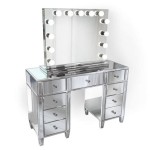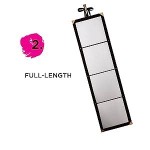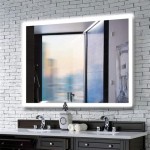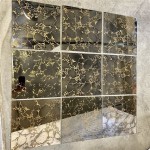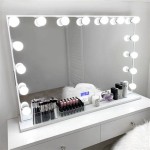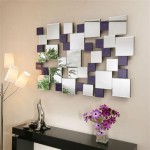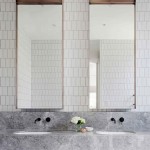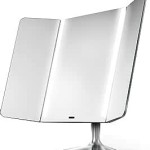Do Mirrors Make You Look Thinner?
The question of whether mirrors make one look thinner is a common one, often fueled by anecdotal experiences of looking better in a particular mirror than in others. This perception is generally not due to any magical slimming properties of the mirror itself, but rather a complex interplay of factors related to the mirror's construction, the surrounding environment, and the viewer's own perception.
Key Factors Influencing Perceived Appearance in Mirrors
Several elements contribute to how individuals perceive their reflections. Understanding these factors can help demystify the "thin mirror" phenomenon.
*
Mirror Type and Quality:
Different types of mirrors exist, including plane mirrors, which are perfectly flat, and non-plane mirrors, which may have slight curvatures or distortions. Low-quality mirrors can have imperfections in the glass or backing that cause slight warping of the reflected image. While high-quality plane mirrors provide the most accurate reflection, minor imperfections in mass-produced mirrors can create subtle distortions. *Mirror Size and Shape:
Larger mirrors offer a more complete view of the body, providing a broader perspective. The shape of the mirror can also influence perception, with elongated mirrors sometimes creating an illusion of height and slenderness. This is not a true change in dimensions but a result of the viewer's comparison of their reflection to the shape of the mirror. *Lighting Conditions:
Lighting plays a crucial role in how reflections appear. Soft, diffused lighting tends to be more flattering, minimizing shadows and imperfections. Harsh, direct lighting, on the other hand, can accentuate wrinkles, blemishes, and body contours. The direction and color temperature of the light can also impact perceived size and shape. *Distance from the Mirror:
The distance between the viewer and the mirror affects the perceived size of the reflection. Standing closer to the mirror makes the reflection appear larger, while standing farther away makes it appear smaller. This perspective shift is a simple geometric principle and does not represent a genuine change in size. *Angle of View:
The angle from which one views their reflection can significantly alter their appearance. Looking at the mirror straight on provides the most accurate reflection, while viewing from an angle can distort proportions. Tilting the mirror slightly up or down can also create illusions of height or shortness.The Role of Perception and Psychology
Beyond the physical properties of mirrors and the environment, psychological factors significantly influence how individuals perceive their reflections.
*
Body Image and Self-Esteem:
Pre-existing body image issues and self-esteem levels can heavily influence how one interprets their reflection. Individuals with a negative body image may perceive their reflection as larger or less flattering, regardless of the mirror's accuracy. Conversely, those with a positive body image may perceive their reflection more favorably. *Cognitive Biases:
Various cognitive biases, such as confirmation bias, can influence how one processes visual information. If an individual believes a particular mirror makes them look thinner, they might selectively focus on aspects of their reflection that confirm this belief, while ignoring evidence to the contrary. *Context and Comparison:
The environment surrounding the mirror can also play a role. For instance, a mirror in a clothing store designed with flattering lighting and strategically placed mirrors can create a more positive perception compared to a harshly lit bathroom mirror. Comparison with other reflections, such as those of friends or models in advertisements, can further shape one's self-perception.The "Thin Mirror" Myth
The notion of a “thin mirror” is largely a misconception. While slight distortions due to manufacturing imperfections or the type of mirror can occur, these are usually minimal and unlikely to create a significant difference in perceived size. The more likely explanation for perceived differences in appearance across different mirrors lies in the factors discussed above.
*
Combinations of Factors:
It is important to understand that multiple factors often work in combination. A slightly tilted, elongated mirror in a well-lit fitting room can create a more flattering image compared to a small, square mirror in a dimly lit bathroom. This difference is not due to any inherent "thinning" property of the first mirror, but rather the interplay of shape, angle, and lighting. *The Power of Suggestion:
The belief that a particular mirror is more flattering can also influence perception. This self-fulfilling prophecy can lead individuals to perceive themselves more positively in that specific mirror, even if there is no objective difference in the reflection. *Individual Variation:
Finally, it is important to acknowledge individual variation in perception. How one perceives their reflection is subjective and influenced by a multitude of factors unique to the individual.Understanding Mirror Reflections
Ultimately, understanding the physics and psychology behind mirror reflections is crucial for a realistic perception of one's body image. Recognizing the influence of lighting, angle, distance, and psychological factors can help individuals avoid unrealistic expectations and develop a more balanced view of their appearance.

Proof You Do Look Diffe In Every Changing Room Mirror Amanda Platell Writes Daily Mail

Fuming Woman Accuses High Street Chain H M Of Using Curved Mirrors That Make Customers Look Fatter The Sun

Are Skinny Mirrors Being Used In Popular Retailers Dressing Rooms I Decided To Find Out

New Skinny Mirror Makes You Look 10 Pounds Thinner Stylecaster
Here S How Skinny Mirrors Trick Women Into More Clothes

Here S How Fitting Room Mirrors Make You Look A Lot Better Than Do

Why Do I Look Diffe In Mirrors 5 Common Reasons
Why Do We Look Fitter In Gym Mirrors Quora

Skinny Mirror Uses Curved Glass To Trick Users Into Appearing Up 10lbs Lighter Boost Confidence Daily Mail
Why Do Some Mirrors Make You Look More Attractive Than Other And Which One To Trust Quora

